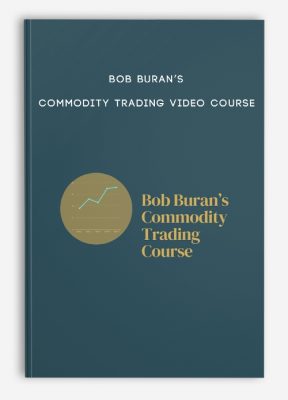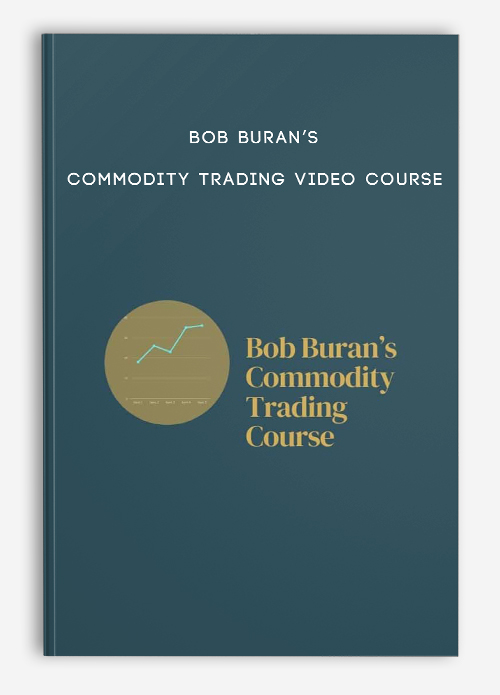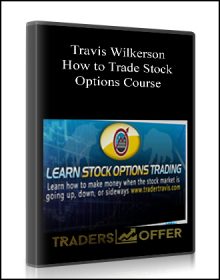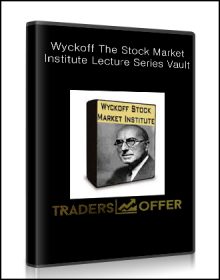Subtotal: $42.00
Bob Buran’s – Commodity Trading Video Course
$29.00

Bob Buran’s – Commodity Trading Video Course
Get Bob Buran’s – Commodity Trading Video Course on Salaedu.com
Description:
Master the building blocks of financial trading and investment over the course of 4 weeks. You will learn to trade with confidence by focusing on both the technical and fundamental aspects of trading/investment with our help and support throughout. You will learn what is required in order to successfully trade stocks, currency and commodity markets.
1. The Opening Bell
When studying any subject matter, it is first necessary to ask the questions of “who”, “what”, “when”, “where” and “why”. In our introductory lesson, we will plan our educational journey while learning the basics of what we need to know to become profitable traders.
2. Leverage, Margin & all the Jargon
In lesson 2, we will learn to talk like trading professionals. Whether its running with bulls or winners, we need to know the terms used in the trading world, to both trade effectively and get to the point. You will learn all the key terms and concepts that you need to begin in the world of trading.
3. Let the Trading Begin
Text books will only get you so far and you will reach a point where there is no better way to learn than “to doâ€. In this lesson, we will show you how to navigate your very own demo trading platform and to start practicing with no risk immediately. This is where your live dynamic really kicks in and makes for a fun and educational experience.
4. Candlesticks – Shedding Light on Opportunities
In order find opportunities we need an efficient way of measuring price – right? Well, charts allow us to do just that. As technical traders, we use Japanese Candlesticks, a very simple and effective style of charting. This lesson will introduce you to price action, reading candlestick charts, doji, engulfing pattern formations, counter retail trading and many other tools you will need to learn to trade successfully.
5. Technical Charting 101
Expanding upon lesson 3, you will learn to develop your technical skills like, finding and utilizing channels and trend trading techniques; highlighting breakouts, support and resistance, with counter retail strategic entry and exit techniques for each trade made. This is very much where the ‘how to’ begins.
6. Becoming a Counter Retail Trader
This lesson brings together all the previous Technical Analysis lessons, focusing on methods of finding Counter Retail Trading opportunities – our speciality. This includes an examination of moving averages, simple & exponential; all focused on attempting to find that confirmation we need to trade profitably. This lesson is not to be missed.
7. Psychology of Real World Trading
Often overlooked in other trading courses, we do not ignore the importance of a good mental state that is required to trade successfully. Real life explanations and examples of the difficulties which real traders face each day are discussed. Practical steps are illustrated to reduce the psychological difficulties faced by real traders and how you will mitigate those using our own in-house developed software. This is when everything really comes together.
8. Return on Investment & Protecting Your Capital
Bond -Stock Trading course
Learn about Bond -Stock Trading:
Bond trading definition
Bond trading is one way of making profit from fluctuations in the value of corporate or government bonds.
Many view it as an essential part of a diversified trading portfolio, alongside stocks and cash.
A bond is a financial instrument that works by allowing individuals to loan cash to institutions such as governments or companies.
The institution will pay a defined interest rate on the investment for the duration of the bond, and then give the original sum back at the end of the loan’s term.
A stock trader or equity trader or share trader is a person or company involved in trading equity securities.
Stock traders may be an agent, hedger, arbitrageur, speculator, stockbroker.
Such equity trading in large publicly traded companies may be through a stock exchange.
Stock shares in smaller public companies may be bought and sold in over-the-counter (OTC) markets.
Stock traders can trade on their own account, called proprietary trading, or through an agent authorized to buy and sell on the owner’s behalf.
Trading through an agent is usually through a stockbroker. Agents are paid a commission for performing the trade.
Major stock exchanges have market makers who help limit price variation (volatility) by buying and selling a particular company’s shares on their own behalf and also on behalf of other clients.
More Course: BOND – STOCK
Outstanding Course:Sovereign Man Confidential – Asset Protection and Estate Planning Video
1 review for Bob Buran’s – Commodity Trading Video Course
Add a review Cancel reply
Related products
Forex - Trading & Investment
Forex - Trading & Investment
Deron Wagner – Sector Trading Strategies. Turning Steady Profits Even In Stubborn Markets
Forex - Trading & Investment
Forex - Trading & Investment
Forex - Trading & Investment
Forex - Trading & Investment

![Investors Business Daily Jan~Apr 2016 - [ePaper (PDF)]](https://tradersoffer.forex/wp-content/uploads/2016/11/Investors-Business-Daily-JanApr-2016-220x280.jpg) Investors Business Daily Jan~Apr 2016 - [ePaper (PDF)]
Investors Business Daily Jan~Apr 2016 - [ePaper (PDF)] 







king –
We encourage you to check Content Proof carefully before paying.
“Excepted” these contents: “Online coaching, Software, Facebook group, Skype and Email support from Author.”
If you have enough money and feel good. We encourage you to buy this product from the original Author to get full other “Excepted” contents from them.
Thank you!